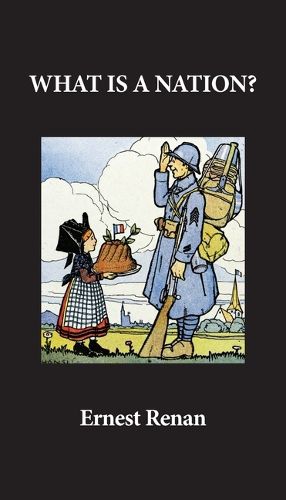Readings Newsletter
Become a Readings Member to make your shopping experience even easier.
Sign in or sign up for free!
You’re not far away from qualifying for FREE standard shipping within Australia
You’ve qualified for FREE standard shipping within Australia
The cart is loading…






First delivered as a lecture at the Sorbonne in 1882, Ernest Renan's What Is a Nation? is a seminal text in the study of nation, nationalism, and nineteenth-century European history. In it, Renan critically reviews the prevailing theories of nationhood of his time. Finding all inadequate to the task, he then develops his own, historically-informed theory wedding considerations of historical continuity to the imperative of present consent.
In an afterword, the political theorist Nathalie Krikorian-Duronsoy distinguishes Renan's idea of the nation from the social contract tradition, particulary in its Rousseauist variant. In Renan's view, the nation is not a mere sum of individuals but an autonomous entity in its own right. Only by grasping this may one move beyond the extremely partial reading to which What Is a Nation? has long been reduced and recognize the various ways in which Renan's thought intersects with contemporary debates regarding immigration, identity, and the future of the nation state.
$9.00 standard shipping within Australia
FREE standard shipping within Australia for orders over $100.00
Express & International shipping calculated at checkout
First delivered as a lecture at the Sorbonne in 1882, Ernest Renan's What Is a Nation? is a seminal text in the study of nation, nationalism, and nineteenth-century European history. In it, Renan critically reviews the prevailing theories of nationhood of his time. Finding all inadequate to the task, he then develops his own, historically-informed theory wedding considerations of historical continuity to the imperative of present consent.
In an afterword, the political theorist Nathalie Krikorian-Duronsoy distinguishes Renan's idea of the nation from the social contract tradition, particulary in its Rousseauist variant. In Renan's view, the nation is not a mere sum of individuals but an autonomous entity in its own right. Only by grasping this may one move beyond the extremely partial reading to which What Is a Nation? has long been reduced and recognize the various ways in which Renan's thought intersects with contemporary debates regarding immigration, identity, and the future of the nation state.